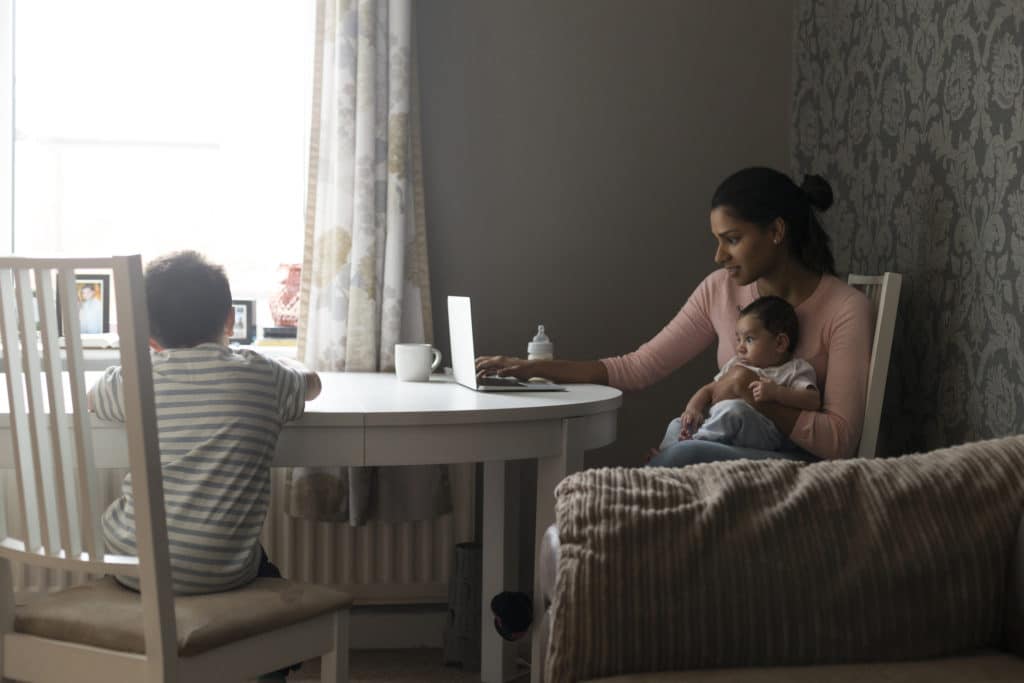“One of the most compelling points is that among the hundreds of widows and divorcees UBS surveyed in its research, the majority wish they’d been more involved in financial decisions while they were part of a couple, and 98% would advise other women to get involved.”
Carey Shuffman, Director & Head of Women’s Strategic Client Segment at UBS
A new survey from UBS Global Wealth Management USA this year explores the impact of COVID-19 on women and their finances and finds that a quarter have had to delay retirement plans, despite the fact that in 2020, 88% told UBS they consider retirement a top financial priority for themselves.
Carey Shuffman, Director & Head of Women’s Strategic Client Segment at UBS, explains how the pandemic is affecting women’s careers and the important actions they can take to stay on top of their goals as they weather the pandemic.

Q: What impacts are women experiencing as a result of the COVID-19 pandemic?
A: The pandemic has created lasting impacts on women across their careers, household responsibilities, and finances. According to our UBS research, women tell us they are shouldering more responsibilities at home. They are handling tasks such as cooking, remote learning and caring for children significantly more than their male spouses, while the majority of men say they are managing more of the household finances.
With the household burden only increasing, UBS’s recent survey also found:
61% of women say the pandemic is hurting their career
4 in 10 have reported that salary increases or promotions were put on hold
26% have considered dropping out of the workforce completely
and a quarter have had to delay retirement plans, creating significant implications for women and their long-term financial futures.
Prior to the pandemic, UBS’s 2020 Own Your Worth report revealed that half of married women deferred long-term financial decisions to their spouse or partner, despite the fact that 8 in 10 women will end up alone and solely responsible for their financial wellbeing one day. A silver lining is that the pandemic has prompted women to rethink their financial lives and discuss finances more with their families.
UBS’s latest COVID-19 pulse survey reveals that 68% of women say they have discussed money more with their partner, and 49% have discussed inheritance with their kids as a result of the pandemic. And in the 2020 Own Your Worth report, 80% of women told us that the pandemic has made them want to protect themselves and their families financially more than ever before. However, women are continuing to fall short on taking financial actions.
Q: If women are discussing finances more with their family, why and how are they continuing to fall short?
A: Since UBS released its Own Your Worth report in June 2020, the company’s latest Pulse research finds women have engaged more with finances as a result of the pandemic, but not to the extent they said they planned to in mid-2020. Last year, 33% of women had reviewed their financial situation in March, and another 40% said they were considering doing so. By January 2021, a total of 45% of women had reviewed their financial situation, a 12-point increase since March.
But this uptick in action falls short when compared with the percentage of women who said they were considering reviewing their financial situation. While our research showed that 12% of women took that step since March, this is far shy of the 40-point increase we would have seen if all of the 40% of women who intended to take this action had done so.This gap between intention and action is also reflected across other important financial steps that can impact women’s’ financial futures, such as discussing the impact of your portfolio with a financial advisor, or reviewing wills and estate plan. While the pandemic prompted some women to set their financial intentions, many have not yet acted.

Q: What are the repercussions for women who opt out of financial decisions? Why is it important that they take control of their financial futures?
A: Beyond the major effects we’re already seeing—like career breaks or having to delay retirement plans—women who choose not to get involved with household finances are putting their futures at risk. Increasing lifespans and higher divorce rates mean the likelihood that women will end up alone and responsible for their finances at some point in their lives also increases. Each woman’s individual circumstances will vary. Some may be caring for aging parents and small children, while others are nearing retirement and focused on maintaining their lifestyle. No matter the scenario, being involved with financial responsibilities can help alleviate the future burden and ensure women and their families are protected. Such involvement can also help women plan to achieve the financial goals they have for themselves and their loved ones – financial involvement and engagement can help women plan for the future and map out a roadmap for achieving goals in the near term, long-term and beyond.
One of the most compelling points is that among the hundreds of widows and divorcees UBS surveyed in its research, the majority wish they’d been more involved in these financial decisions while they were part of a couple, and 98% would advise other women to get involved. In fact, UBS recently spoke with supermodel Paulina Porizkova in a video series where she shared stories about her personal experience with money, the financial fallout of her divorce and widowhood, and why she believes women should act now and get involved with their finances.
Q: What can households do to help equalize the division of labor and get on track with their financial goals?
Having a conversation with your partner to get aligned on finances and make sure you’re both looped in is an important first step. Simply asking about topics that get to the root of your household’s values and current financial situation can be a great way to ease in and discuss how you can delegate responsibilities between the two of you when it comes to managing finances. For example, discuss who the most important people in your lives are, what your concerns may be or ask about overspending, cash flow and/or developing a budget. If you have disagreements with your partner, find a compromise that includes elements that are important to you both.
Once the line of conversation has been opened, women and couples should consider meeting with a financial professional to develop a plan that can help them achieve their long-term goals and ensures both individuals have a seat at the table.

Carey Shuffman
Head, Women’s Strategic Client Segment
Client Strategy Office (CSO)
Shuffman is the Head of the Women’s Strategic Client Segment. She is responsible for the development and implementation of UBS’s strategy to address the unique financial needs of women, with a focus on financial education and research, client engagement and creative content.


